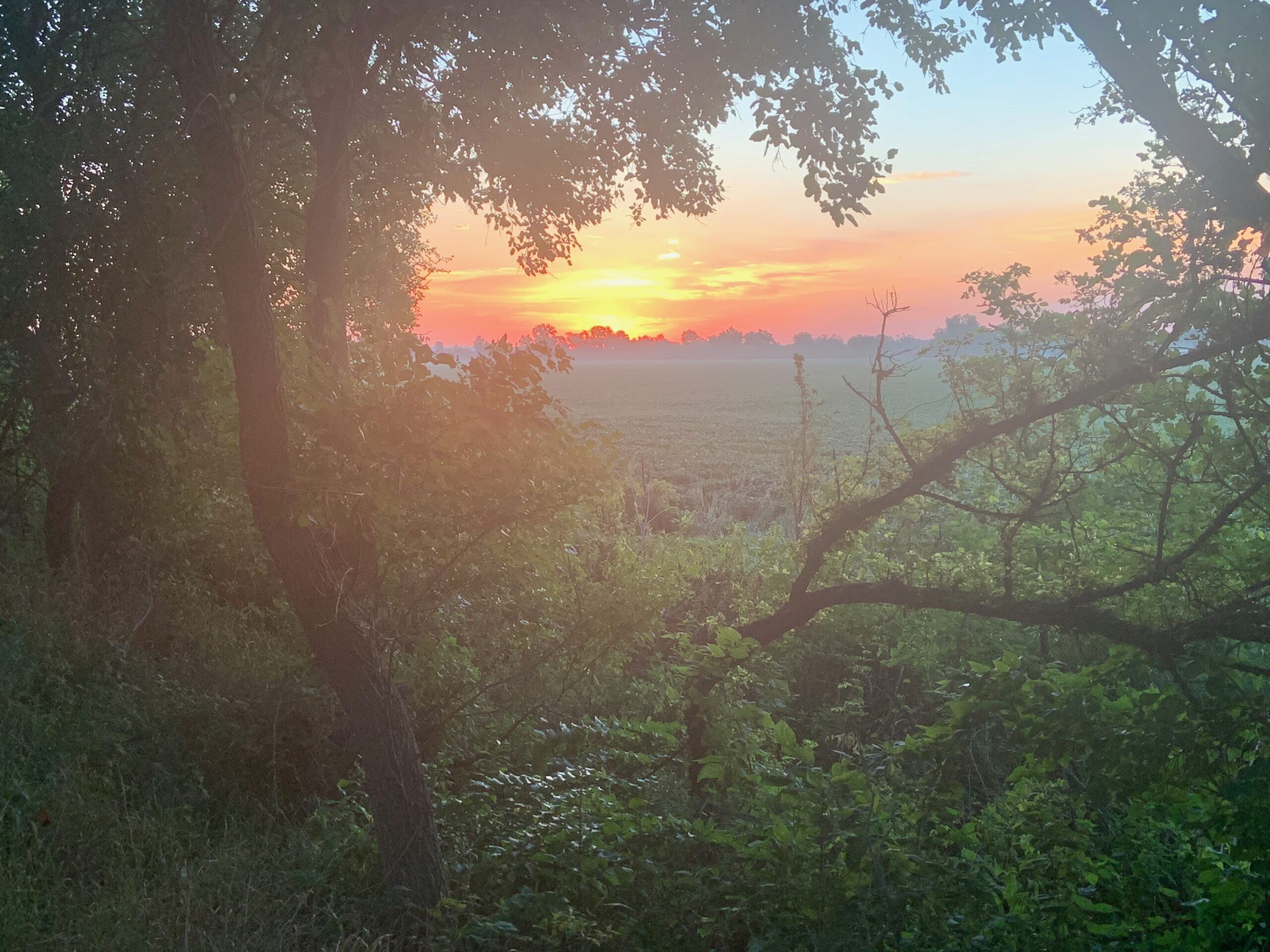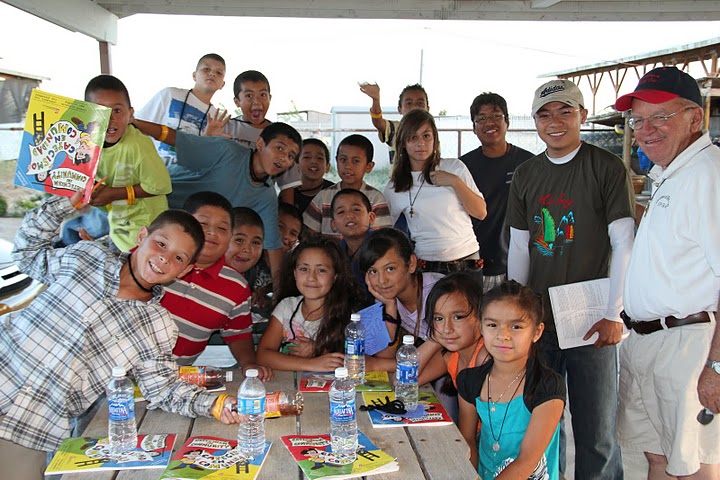Un Nuevo Camino – A New Direction: Vayan a todas las naciones – Go to all nations
Vayan a todas las naciones
Al final del evangelio de Mateo, Jesús les dice a los apóstoles: “Vayan, hagan discípulos a todas las naciones”. En Pentecostés, los apóstoles se encontraron con una multitud de muchas naciones del mundo, y la gente se maravilló al escucharlos hablar en sus propios idiomas. Unos 3.000 se bautizaron ese día. Incluso al escuchar el llamado a hacer discípulos en todas las naciones, la comunidad de la Iglesia primitiva se tomó el tiempo para darse cuenta de que eso significaba no solo buscar al judío convertido, sino ir verdaderamente a todas las personas.
Ministerio a migrantes e inmigrantes
La mayor parte de mi trabajo con migrantes e inmigrantes es con personas que llegaron a los Estados Unidos desde México y Centroamérica. Cuando comencé a trabajar con migrantes, el P. Enrique López me dijo: “Si no caminas con mi gente, no te molestes en aprender español”. Fue una gran lección para mí. No podía hacer discípulos de personas que no conocía. Necesitaba no solo aprender el idioma. Tuve que comer la comida, escuchar las historias, escuchar sus dificultades y honrar su historia de fe. Hacer discípulos de todas las naciones comienza con tener una relación con las personas que sirve.
Cuando estaba en Denver, trabajaba principalmente con inmigrantes mexicanos. En un funeral conocí a un hombre de Nicaragua. Hice un comentario sobre ir a México y me dijo: “ustedes, los estadounidenses, necesitan comprender que no todos los latinos son mexicanos”. Su reacción emocional me sorprendió, pero luego me ayudó a entender su frustración de que las iglesias aquí celebran todas las fiestas mexicanas, pero no reconocen las fiestas de otros países latinoamericanos.
Luego comencé a trabajar con comunidades indígenas de México y Guatemala. Cada comunidad tenía diferentes idiomas y tradiciones. Como sacerdote, tuve que escuchar más y hablar menos a medida que aprendía sobre las diferentes culturas. Desarrollar una sensibilidad hacia personas de diferentes culturas y países es esencial para un trabajo eficaz con migrantes e inmigrantes.
En una parroquia donde trabajaba, había refugiados, migrantes e inmigrantes de África, Asia y América Latina. Se hablaban más de quince idiomas en los hogares de la gente de esa parroquia. En muchos sentidos, fue más fácil desarrollar la unidad en esa parroquia con muchas culturas e idiomas que en una comunidad con solo dos o tres culturas. Las personas tendían a ser más conscientes de aprender sobre la vida de las personas en sus diversas naciones.
En una celebración parroquial, la comunidad guatemalteca tocó una marimba. El instrumento tenía seis personas tocando a la vez. Mientras tocaban sus ritmos guatemaltecos, un grupo de África bailaba con la música. El grupo africano preguntó si podían tocar la marimba. El guatemalteco se ofreció a enseñarles a tocar. Los africanos dijeron que sabían tocar, pero su ritmo era diferente. Mientras tocaban, los guatemaltecos bailaban al ritmo de África.
Hacer discípulos de todas las naciones implica caminar con la gente de todas las naciones. Comiendo su comida. Orando en sus tradiciones. Incluso bailando con su música.
(Mañana: Bautícenlos)
Go to all nations
At the end of the gospel of Matthew, Jesus tells the apostles, “Go, make disciples of all nations.” On Pentecost, the apostles met the crowds from many nations of the world, and the people marveled as they listened to them speaking in their own languages. Some 3,000 were baptized that day. Even hearing the call to make disciples of all nations, the early Church community took time to realize that meant to not just seek out the Jewish convert, but to truly go to all people.
Ministry to migrants and immigrants
Most of my work with migrants and immigrants are with people who came to the United States from Mexico and Central America. When I began working with migrants, Fr. Enrique Lopez told me, “If you do not walk with my people, don’t bother learning Spanish.” It was a great lesson for me. I could not make disciples of people whom I did not know. I needed to not only learn the language. I had to eat the food, hear the stories, listen to their hardships and honor their faith history. Making disciples of all nations begins with having a relationship with the people being served.
When I was in Denver, I worked mostly with Mexican immigrants. At a funeral, I met a man from Nicaragua. I made a comment about going to Mexico and he said, “you Americans need to understand that not all Latinos are Mexican.” His emotional reaction stunned me, but then he helped me understand his frustration that the churches here celebrate all the Mexican feasts, but do not recognize the feasts of other Latin American countries.
Later, I began working with indigenous communities from Mexico and Guatemala. Each community had different languages and traditions. As a priest, I had to listen more and talk less as I learned about the different cultures. Developing a sensitivity to people from different cultures and countries is essential for effective work with migrants and immigrants.
In one parish where I worked, there were refugees, migrants and immigrants from Africa, Asia and Latin America. There were over fifteen languages spoken in the homes of people in that parish. In many ways, it was easier to develop unity in that parish with many cultures and languages than in a community with only two or three cultures. People tended to be more aware of learning about the lives of people in their various nations.
At one parish celebration, the Guatemalan community played a marimba. The instrument had six people playing at one time. As they played their Guatemalan rhythms, a group from Africa danced to the music. The African group asked if they could play the marimba. The Guatemalan’s offered to show them how to play. The Africans said that they knew how to play, but their beat was different. As they played the Guatemalans danced to the African rhythms.
Making disciples of all nations involves walking with the people of all nations. Eating their food. Praying in their traditions. Even dancing to their music.
(Tomorrow: Baptize them)





